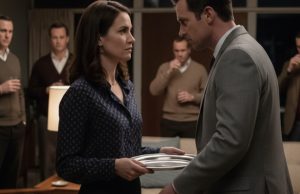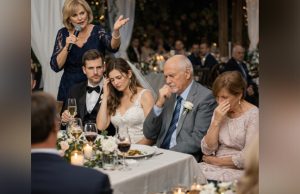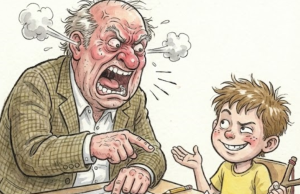
The hospital was crowded that morning, with people milling around doing paperwork. My wife was scheduled for blood and urine tests. When she entered the exam room, I waited outside. My heart was pounding, not understanding why I was so nervous that day.
About ten minutes later, the doctor on duty—a middle-aged man with a calm face—came out and called me over. I hurriedly stood up, thinking he might need more information about my wife’s medical history. But suddenly, he leaned closer, lowered his voice, and whispered in my ear:
“Sir… call the police immediately.”
I froze. Thousands of questions exploded in my head. Call the police? Did that mean this wasn’t just an illness? I stammered:
“Doctor… what’s going on?”
His serious and intense gaze pierced me:
“Remain calm. Your wife is safe now, but the test results and certain signs on her body lead us to suspect… that she has been the victim of intentional harm over a prolonged period. This is a legal matter. We can’t let her out before the police arrive.”
I felt my legs go weak. My heart ached, and my mind was in turmoil. Victim? How could all this be happening without me noticing?
The doctor placed a hand on my shoulder and spoke in a low voice:
“You are her husband, but to protect her, you must remain calm. Don’t say anything to her yet. We need time until the authorities arrive.”
With trembling hands, I dialed the police. My voice cracked as I briefly explained what the doctor had told me. The operator reassured me:
“Remain calm, the patrol car will arrive shortly.”
Ten minutes later, two officers entered the hospital. They spoke to the doctor and asked me to wait in the hallway. I stared at the closed door, feeling like time had stopped. A thousand thoughts raced through my head: Who could have hurt my wife? How could I not have noticed?
Finally, the officers ushered me in. My wife stood there, pale, with tears in her eyes. She avoided looking at me. The doctor sighed and explained gently:
“During the examination, we discovered changes in your body that are not consistent with a common illness. They are the result of slow poisoning with a harmful substance. That’s why I asked you to call the police.”
I was speechless. My mind was blank, just a lump in my throat. I took her hand in my trembling ones and asked:
“Who did this to you?”
She burst into tears:
“I don’t know for sure… but lately, every time I drank the glass of water left in the kitchen, I felt dizzy and nauseous. I thought it was fatigue. I didn’t mean to worry you… I never imagined…”
My tears flowed uncontrollably. I felt rage, helplessness, but above all, a deep pain. The person who shared my life was suffering, and I hadn’t seen it. The police took note, requested that some objects in our house be seized as evidence, and began the investigation.
That day I realized that my wife’s life was saved thanks to the alertness and responsibility of a doctor. Without that whisper, I might never have discovered the truth. I squeezed her hand and said:
“Relax, as long as I’m here, I won’t let anyone hurt you again.”
In the following days, she began detoxification. She was very weak, but little by little her vision was recovering. The police were working hard to find the culprit. I spent sleepless nights, between worry and hope that everything would soon be clear.
One night, as I stood by her bed, she took my hand with tears in her eyes:
“Thank you… if you hadn’t insisted on bringing me, I might not be here anymore.”
I hugged her tightly, containing my emotions:
“No, it was the doctor who saved you. But I promise you, you’ll never face anything alone again.”
In that white room, with the constant beeping of the machines monitoring her heart, I felt a strange peace. I knew there were still obstacles ahead, but I was also certain that as long as we were together, nothing could bring us down.

















